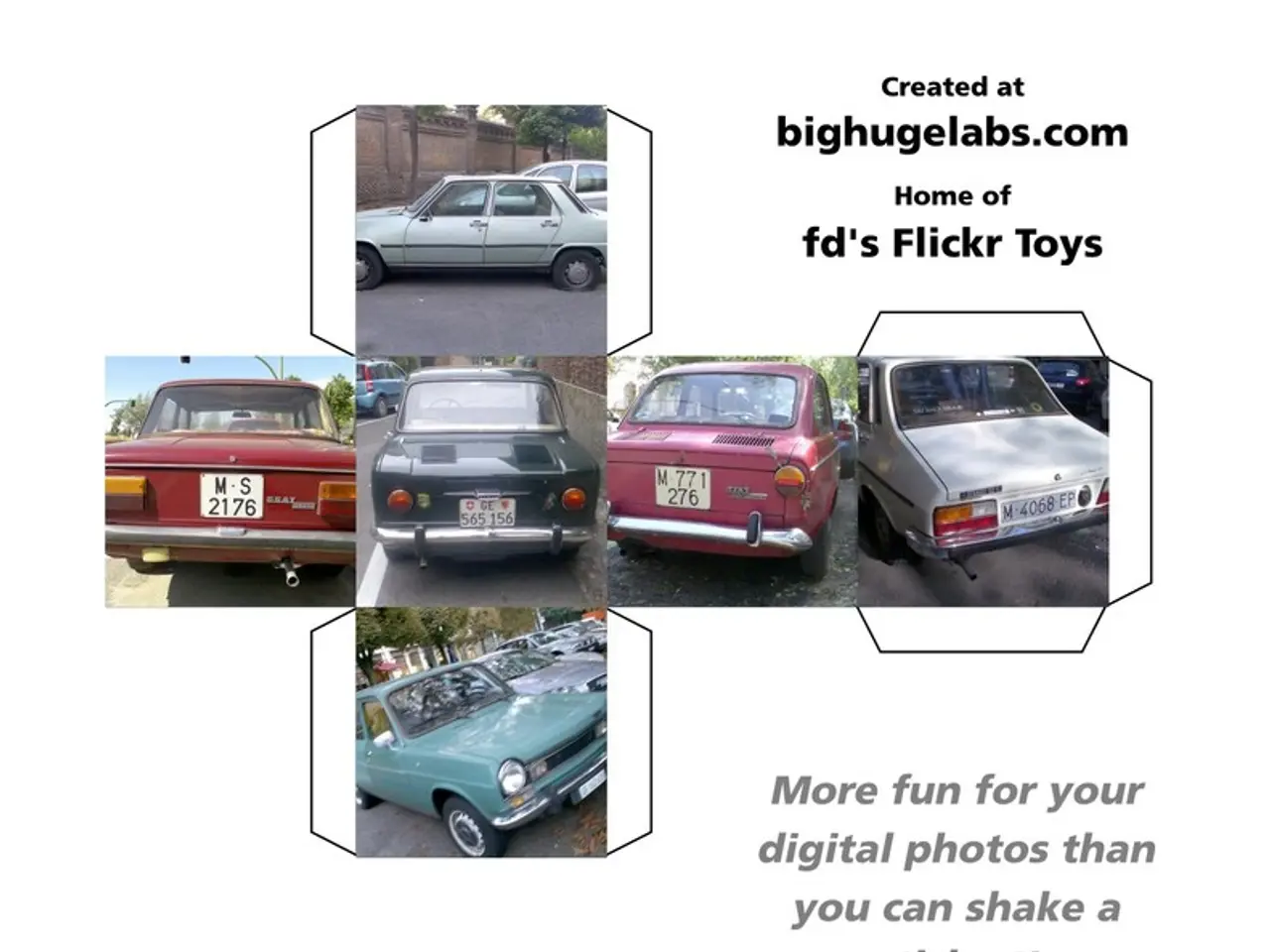China's July New Energy Vehicle retail numbers dip below one million for the first time, marking a year-on-year setback for hybrid models.
China's Passenger New Energy Vehicle Sales Dip in July
China's passenger new energy vehicle (NEV) retail sales saw a slight dip in July, with 987,000 units sold, marking a return below the 1 million mark after rebounding above that level in May and June. This decline was primarily due to a combination of factors affecting the hybrid vehicle market.
Hybrid vehicle retail sales experienced their first-ever year-on-year decline in July, with plug-in hybrid electric vehicles (PHEVs) and extended-range electric vehicles (EREVs) combined sales dropping by 4.04 percent year-on-year and 15.56 percent month-on-month. The retail sales of PHEVs accounted for 278,000 units, contributing 28.2 percent of NEV retail sales, and EREVs accounted for 102,000 units, contributing 10.3 percent.
The decline in hybrid sales can be attributed to several key factors. Tougher regulations impacting the auto industry and tighter oversight slowed overall car sales growth in China, dropping from 18.6% growth in June to 6.9% in July. Price wars among major automakers exerted pressure on sales and profit margins, particularly hurting hybrid vehicle sales. Government subsidy adjustments, including the pause or reduction of certain 2025 subsidy schemes for NEVs, especially plug-ins, diminished consumer incentives, contributing to slower growth or outright declines in hybrid sales.
The market shift favoring pure electric vehicles (BEVs) is another significant factor. BEV sales increased significantly, with BEV retail sales in July totaling 607,000 units, up 24.5 percent year-on-year and down 8.1 percent from June. BEVs accounted for 61.5 percent of total NEV retail sales in July, up 2 percentage points from June.
The penetration rate of NEVs in China's retail market in July was 54.0 percent, with a year-on-year increase of 2.7 percentage points and a month-on-month increase of 0.7 percentage points. In wholesale sales, the penetration rate was 53.2 percent, with a year-on-year increase of 5 percentage points and a month-on-month increase of 3.4 percentage points.
China exported 213,000 passenger NEVs in July, with a year-on-year increase of 120.4 percent and a month-on-month increase of 7.6 percent, accounting for 44.7 percent of passenger vehicle exports. After excluding EREVs, PHEVs accounted for 278,000 units of retail sales in July, contributing 28.2 percent of NEV retail sales.
Notable company-specific impacts include BYD's three-month consecutive sales decline and Li Auto's 40% drop compared to the previous year, underscoring the challenges in the hybrid segment.
This decline in hybrid retail sales reflects regulatory, economic, and market forces combined with shifting technology trends favoring pure electric vehicles in China’s rapidly evolving NEV market. This decline was notable because it marked the first time since monitoring began in 2020 that hybrid vehicle retail sales fell year-on-year.
[1] [Source] [2] [Source] [3] [Source] [4] [Source] [5] [Source]
- Tesla's electric vehicle sales in China continue to soar, showing a resilience in the overall new energy vehicle market.
- The renewable-energy industry is increasingly attracting investment from finance and wealth-management sectors, due to their interest in sustainable living.
- Lifestyle choices are shifting towards electric vehicles, as people become more aware of the environmental impact of traditional vehicles.
- The data-and-cloud-computing industry is playing a vital role in the development of China's electric vehicle market, with advancements in battery technology being a key focus.
- As the home-and-garden sector moves towards energy efficiency, electric vehicles are becoming a popular choice for personal-finance-conscious consumers.
- Real-estate developers are considering including electric vehicle charging stations in their plans, as part of their commitment to sustainable living.
- The technology behind electric vehicles is improving, with developments in weather-forecasting technology aiding in the prediction and mitigation of charging outages due to adverse weather conditions.
- Sports enthusiasts are increasingly opting for electric vehicles, with the growing popularity of sports-betting platforms offering incentives for carbon-neutral lifestyles.
- Weather-forecasting apps are integrating electric vehicle data, allowing drivers to plan their charging schedules based on renewable energy supply and weather patterns.
- The electric vehicle industry is evolving rapidly, with new battery technologies emerging that promise longer ranges and reduced charging times.
- The sports industry is recognizing the potential for electric vehicles, with an increasing number of events beginning to take place in eco-friendly venues.
- The future of the electric vehicle market in China is looking bright, as the shift towards sustainable living gains more traction.
- The country's electric vehicle industry is positioning itself as a global leader, prompting investments in technology, research, and development from various sectors, including sports, real estate, and personal finance.





